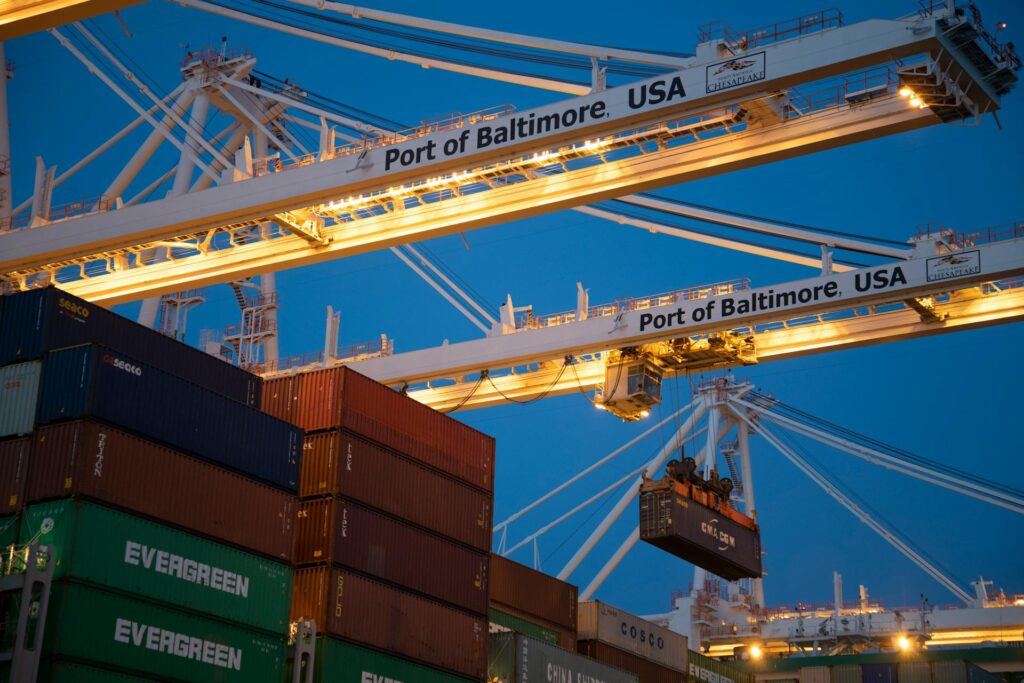
In today’s booming global agriculture, fertilizers, as the indispensable “mother of grain” in modern agriculture, have seen a continuous rise in international trade volume. However, when these nutrient-rich goods cross the oceans, especially when the target market is a Middle Eastern country like Saudi Arabia, a complex and meticulous customs clearance journey quietly begins. This article will deeply explore the special challenges faced by fertilizer shipping export to Saudi Arabia, especially the various requirements and restrictions in the customs clearance link, and provide a set of effective solutions to help businesses successfully deliver products to customers.
I. The Unique Charm and Challenges of the Saudi Fertilizer Market
Market Overview
Saudi Arabia, as an economic powerhouse in the Middle East and a country rich in agricultural resources, has an increasing demand for fertilizers. With the government’s emphasis on agricultural modernization and the promotion of the “Saudi Vision 2030” plan, the agricultural sector is experiencing an unprecedented transformation and upgrade, and there is an especially urgent need for efficient and environmentally friendly fertilizer products. This provides broad market opportunities for global fertilizer exporters.
Challenges Emerging
However, opportunities always come with challenges. When fertilizer goods are exported to Saudi Arabia, not only do they need to face the common difficulties of international logistics, such as transportation safety and cost control, but they also need to cross a difficult-to-ignore threshold – Saudi Arabia’s strict import supervision and customs clearance system. These systems are designed to protect the domestic environment, consumer health and market order, but at the same time, they add a lot of complexity and uncertainty to international trade.
II. The “Multiple Hurdles” in the Fertilizer Sea Freight Customs Clearance Link
- Approval Certificates: The Only Way
Before fertilizer goods enter the Saudi market, they must obtain approval certificates issued by relevant Saudi departments. These certificates usually include product registration certificates, import licenses, safety compliance certificates, etc., and different types of fertilizers may require different approval processes and times. This process not only requires exporters to have an in-depth understanding of the product but also needs to be familiar with Saudi Arabia’s laws, regulations and approval processes. Any omission in any link may lead to goods being detained or returned. - Technical Standards and Compliance
Saudi Arabia has strict technical standards and compliance requirements for the quality, composition, packaging, etc. of imported fertilizers. For example, there are strict limit standards for heavy metal content and harmful substance residues in fertilizers to ensure that they will not have a negative impact on soil, water sources and the ecological environment. Therefore, exporters need to ensure that their products meet Saudi Arabia’s relevant standards and prepare sufficient inspection reports and supporting documents. - Customs Inspection and Document Requirements
When fertilizer goods are inspected by Saudi customs, customs officials will carefully check the quantity, specification, origin, composition and other information of the goods and compare them with the provided documents. In addition, a series of documents such as MSDS (Material Safety Data Sheet), transportation reports, certificates of origin, invoices, packing lists, etc. may be required. Any missing or inconsistent information may lead to customs clearance delays or refusal of entry. - Environmental Protection and Tax Policies
The Saudi government is committed to environmental protection and sustainable development and has implemented a series of environmental protection policies and tax policies for the import of chemicals such as fertilizers. For example, high tariffs or import restrictions may be imposed on some highly polluting or high-energy-consuming fertilizer products. Exporters need to closely monitor these policy changes to avoid unnecessary losses.
III. Solutions: Professional Assistance for a Smooth Passage
Facing the many challenges of exporting fertilizers to Saudi Arabia, professional solutions are particularly important. The following is a comprehensive strategy designed to help businesses smoothly cross the customs clearance hurdles:
- In-depth Understanding of the Market and Regulations
Before deciding to export fertilizers to Saudi Arabia, businesses should first conduct sufficient market research and regulatory studies. Understand Saudi Arabia’s market demand, competition pattern, import policies, technical standards and other information to lay a solid foundation for subsequent export work. At the same time, establish communication channels with relevant Saudi departments to keep abreast of policy dynamics and approval requirements. - Choose Professional Partners
Establishing cooperative relationships with logistics companies and customs clearance agents familiar with the Saudi market is the key to ensuring the smooth export of fertilizers. These partners usually have rich industry experience and professional knowledge and can provide customers with one-stop services from cargo loading, sea freight arrangement, document preparation to customs clearance. They are familiar with Saudi Arabia’s approval processes and customs requirements and can effectively avoid various problems and delays in the customs clearance process. - Ensure Product Compliance
Exporters should ensure that the fertilizer products they produce meet Saudi Arabia’s technical standards and compliance requirements. This includes but is not limited to product quality stability, composition accuracy, packaging standardization and other aspects. If necessary, a third-party testing agency can be entrusted to conduct comprehensive testing of the products and obtain corresponding testing reports and supporting documents. These documents will become important bases in the customs clearance process. - Meticulously Prepare Document Materials
When preparing export documents, exporters should strictly follow the requirements of Saudi customs. Ensure that all documents are complete, accurate, standardized and meet the requirements of international trade practices and Saudi laws and regulations. At the same time, pay attention to the timeliness and consistency of documents to avoid customs clearance delays or refusal of entry due to expired documents or inconsistent information. - Strengthen Communication and Coordination
During the entire export process, exporters should strengthen communication and coordination with relevant Saudi departments, logistics companies and customs clearance agents. Keep abreast of approval progress and customs clearance situations in a timely manner and solve possible problems and difficulties. At the same time, maintain close contact with customers to ensure information transparency and accuracy and improve customer satisfaction and trust. - Pay Attention to Policy Changes and Risk Prevention
Saudi Arabia’s policies and regulations may change with time and market conditions. Exporters should closely monitor these policy changes and adjust export strategies and plans in a timely manner. At the same time, strengthen risk prevention awareness and formulate contingency plans and measures to ensure the stable operation of fertilizer export business.
IV. Conclusion
Although exporting fertilizers to Saudi Arabia faces many challenges, through measures such as in-depth understanding of the market and regulations, choosing professional partners, ensuring product compliance, meticulously preparing document materials, strengthening communication and coordination, and paying attention to policy changes and risk prevention, businesses can still smoothly cross the customs clearance hurdles and deliver high-quality fertilizer products to Saudi customers. In this process, the accumulation of professional knowledge and experience will play a crucial role. I hope this article can provide useful references and lessons for businesses aspiring to develop the Saudi fertilizer market.





